Fair Exchange
An inspiring student programme between Glasgow Dental school and one of china’s leading universities is delivering big benefits and fresh opportunities to a high-level educational partnership
When asked to sum up the outcome of the student exchange programme between Glasgow Dental School and the Sun Yat Sen University (SYSU) School of Stomatology, in Guangzhou, China, “Inspiring on both sides” is the verdict of Professor Jeremy Bagg.
The two institutions have recently completed the third year of a programme that sees six students from Glasgow spend four weeks in Guangzhou, with six Chinese students visiting Scotland.
Professor Bagg was instrumental in setting up the exchange programme, which is part of a high-level partnership between the University of Glasgow and SYSU, covering disciplines including medicine, engineering and information science and technology. SYSU is a national “key” university in China and is ranked among the country’s leading institutions.
the student exchange was the spark ... now it’s growing into a meaningful, long-term collaboration
Professor Jeremy Bagg, Glasgow Dental School
“The partnership we have now between the University of Glasgow with SYSU reaches right across the two establishments, and when I initially met a senior professor from SYSU’s dental school we hit it off straight away,” says Professor Bagg. “His subject areas were relevant to the research we’re doing here and he was keen to do a student exchange. After I visited Guangzhou in December 2013 to meet everybody and do some lectures, it was fairly straightforward to establish the exchange programme.”
One of the main benefits, according to Professor Bagg, is that students based in Scotland have the opportunity to experience a different set of challenges in dentistry and see how China’s society is managing those challenges.
“We also time it so that the students from SYSU come here a couple of weeks before our students go there, so the two groups have two weeks together here and then two weeks together in Guangzhou, so they also learn about student life from each other,” he says. “That allows for interaction between the two groups and helps us develop something like two families of students in the two centres.”
The student exchange has also already developed into a deeper relationship and further interaction between the two institutions, with collaboration ongoing between their research groups in dental pubic health and oral sciences.
“We’re working with our colleagues at SYSU in areas around immunology and microbiology, with a particular interest in dental caries in children,” says Prof Bagg. “With the success of the Childsmile programme in Scotland, we want to look at the situation in China in terms of diet, the difference between urban and rural areas, and even sociological aspects where for example so many children in China in the early stages of their life are being brought up by their grandparents, and whether that makes a difference in oral health.
“The advantage is that we’re bringing together expertise from both centres and both parties can benefit hugely from that. The student exchange was the spark that allowed us to start working together in a small way and to get to know each another, and now it’s growing into a meaningful, long-term collaboration.”
From Guangzhou to Glasgow
For Xiaorui Zhu, Zhenyu Xie, Xinyuan Lei, Xueqin Zhang, Wenxin Mu and Xiaoyi Huang, the chance to study at Glasgow Dental School has not only been an educational experience – it’s been a stimulating cultural journey.
The cohort from China spent time in Glasgow seeing how dentistry is delivered in a different environment from their own, observing a variety of clinics, visiting the Royal College of Physicians and Surgeons in Glasgow, having discussions about current research projects and attending lectures on areas such as professional ethics.
The students were especially interested in the differences between the medical systems in the two countries, with no equivalent of the NHS in China.
“In terms of treatment procedures and equipment, what we’ve seen has been similar to what we have in Guangzhou,” said Wenxin. “The biggest difference is in the system itself, because in China the patients always pay for their treatment.”
Xueqin said: “We’ve seen here how dentists in Scotland have more time with their patients. In my experience in China, the dentists have so many patients and they are expected to carry out their treatment very quickly, so there isn’t the same amount of time for the dentist to communicate with their patients.”
Zhenyu expressed interest in initiatives such as the Childsmile programme and the potential to establish a similar scheme in China.
“It’s been interesting to learn about the Childsmile programme, as well as caring programmes for older people,” he said. “I don’t know of any equivalent programmes in China, so I think we can learn from the experience of how they have been set up and operated here.”
Xiaoyi said: “In public oral health, prevention is more important than treatment. If you can control the level of decay in children, then it gives you more control over the need for procedures in the future.”
One area the students were agreed on was about their appreciation of Scotland’s natural environment, and the open nature of the people they encountered throughout their exchange programme.
“This has been my first trip outside of Asia, and the biggest impression I’ve been left with has been how friendly everybody has been,” said Zhenyu. “In China our cities are so big and everybody is hurrying and working, so it’s difficult to have patience for people. Here, people say hello and leave the door open for you, it’s very sweet – I’ve already developed these habits and will bring them back to China like a gentleman!”
- Students at Sun Yat Sen University posing with their Glaswegian guests
- Both sets of exchange students in China
- The Glasgow students with their Chinese guides on a day trip.
From Glasgow to Guangzhou
While the six students from SYSU were in Scotland, a cohort from the Glasgow Dental School were immersing themselves in the opportunity to study in an environment as different for them as the Scottish one was for their Chinese counterparts.
Their timetable was also spread over the course of four weeks at SYSU, with time spent in the four departments of paediatrics, prosthodontics, endodontics and oral surgery. For Ali Rizvi, the opportunity to visit the oral surgery department was a particular highlight.
“Observing the facial reconstruction surgeries was fascinating,” he said. “It gave me a lot of respect for the surgeons who have to carry out the long procedures such as resecting tumours or orthognathic surgery, which would last from morning till the evening.”
“My clinical rotation in the maxillofacial department was eye-opening,” said Anupam Chandran. “I got to witness a variety of surgical procedures first hand and gained a whole new perspective as well as developing a new-found interest in the speciality.
“My rotation in the paediatric dentistry department was another highlight of my visit. I was able to see the different challenges placed upon the paediatric dentists in China, as well as getting to interact with parents and children regarding dental treatment and advice.
“One of the things I enjoyed the most within the exchange programme was my trip to a local kindergarten to deliver an oral health presentation to the children. They were really excited to have us there and I thoroughly enjoyed the whole experience.”
For Sagar Jadeja, the experience not only provided an insight into how to improve his dentistry, but into how to overcome language barriers and potential cultural differences.
“I would advise anyone who has the opportunity to go on such a trip to go into it with the idea of not just looking at the programme through the eyes of a dental student, but instead to be open to all that the experience offers.”
Ali agreed. “The programme was not just do with dentistry, it was about building inter-university relationships. We made a lot of new friends on our journey and it was a great experience living in a country that I have never been to before. I would recommend anyone who is carrying out their dental elective for the summer next year to apply for the exchange programme, as it’s a valuable experience and may help the Glasgow students decide which speciality they may want to choose in the future.”
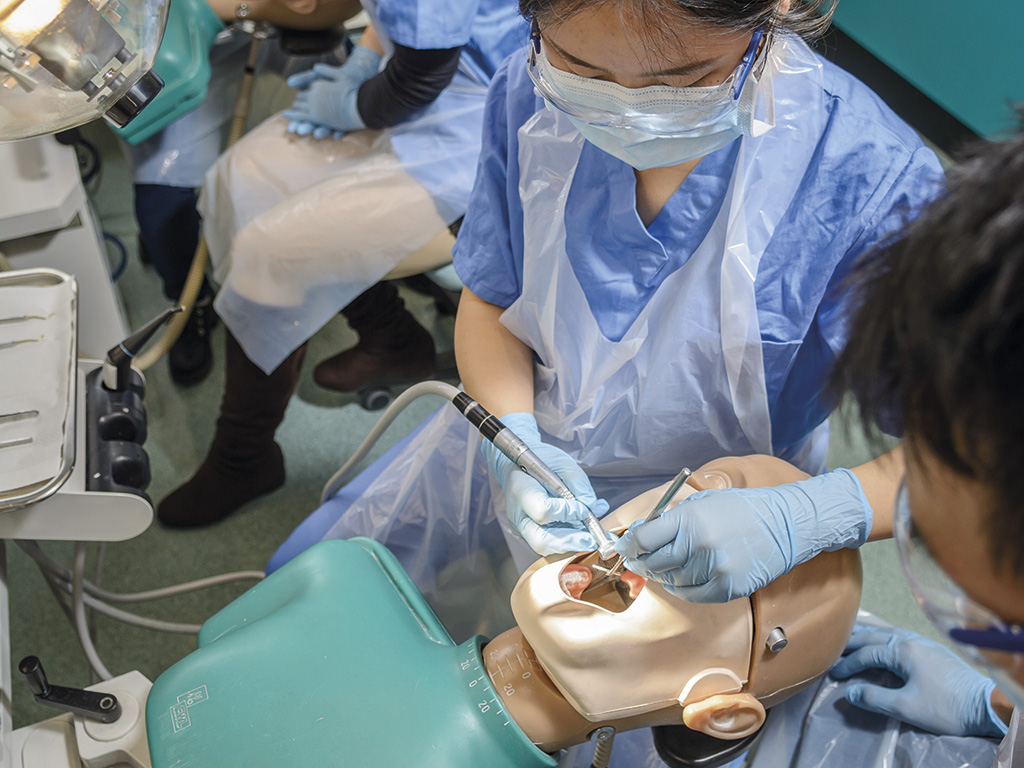
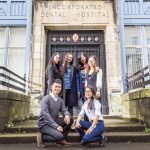
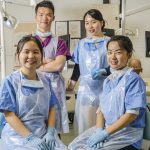
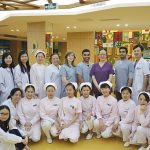
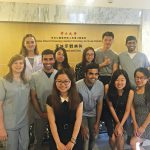
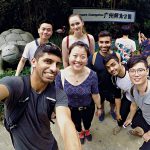
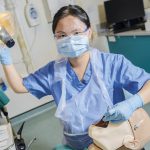
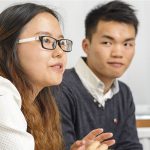
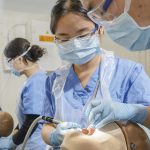
Comments are closed here.